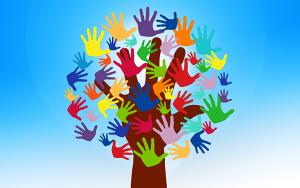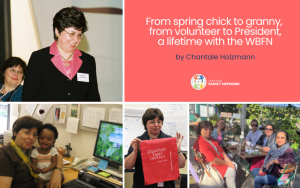
By Matuna and A.A.
“Famine is a stain on our collective conscience. Millions of lives are at risk and more will die if we do not act quickly and decisively.”—President Jim Kim, March 8, 2017i
“The ongoing conflict in Yemen has caused a catastrophic humanitarian crisis. As of March 2017, an estimated 17 million Yemenis (about 60 percent of the total population) are estimated food insecure and a further 7 million severely food insecure.” ii
Two members of our WBFN community are deeply concerned about the situation in Yemen, a country where ongoing conflict has led to serious food shortages, and the real possibility of large scale famine in the coming months. A.A. (she prefers to use her initials) is a Yemeni national who has been obliged to leave her country, while Matuna is from Bangladesh and works on social protection projects for the WBG. Each woman brings a different perspective on the effect that the war has had on food distribution in Yemen.
In 2015, A.A. was living in Yemen’s capital Sana’a with her baby son and husband, a WBG staff member. Because of shelling in the city, the WBG decided to evacuate staff to in the country office to Cairo, but neither A.A. nor her husband could bear to leave their families. Four months later, when the WBG again offered to fly them out, they accepted for the sake of their son and went to Jordan. From there, A.A.’s husband found a new post at HQ and they moved to Washington DC. A.A. has daily contact with her family, which keeps her up to date on the situation in her country.
In the city, food is available in the stores, though with inflation it has risen up to three times in price, meaning vulnerable families are struggling to feed themselves. A.A. has friends who organize prepared food to be delivered to schools, and some who have started a bakery to sell at low cost only to people in need. Others try to take food into rural areas where the population is desperate.
Although there is still food in the capital, there are no medications. The lucky ones can get their insulin, for example, sent from friends and family overseas, but for others without those connections (the great majority) there is no availability at all to treat chronic diseases and childhood illnesses.
For Matuna the concern for Yemen comes from her professional involvement. However, because she grew up during the terrible 1974 famine in her own country of Bangladesh, she knows only too well the devastating short and long term effects that it has had (death, disease, malnourishment, the breakdown of infrastructure). She has been working from Jordan on a project together with the UN and UNICEF to assist the Yemeni government with social services, such as cash transfers and emergency work programs. She tracks the numbers and economic indicators which indicate an imminent famine, and describes the direction they are taking as heartbreaking.
Wheat, for example, is the staple cereal grain in Yemen, but cultivation has been severely affected by war, and the 80% which is normally imported has become too expensive to buy with the devaluation of the currency. In addition, even when wheat can be obtained, it often cannot be brought to the worst areas of food shortages because of the conflict. For example, the main entry port for wheat, Al Hudayda, is surrounded by continued fighting.
Not only wheat, but all imports, agriculture and fishing has been severely affected by the conflict. There has been a concerted response by international organizations to raise funding for humanitarian assistance (see here for the WBG’s pledge), but Matuna comments that getting aid to affected areas is complicated by the conflict which forces social and humanitarian services to pull back or out.
How can we help? Three international organizations receiving credit card donations are: Ocha, DEC, WFP
Matuna and A.A. would like to thank the community of spouses and partners at the WBFN for taking the time to learn about the dire situation in Yemen.
Update July 2017
As predicted earlier in the year, the situation in Yemen has worsened. There are pockets of officially designated famine, as well as serious cholera outbreaks in many areas. The bulletin below from OCHA gives a good overview of the general humanitarian crisis as of June. The second report is from UNICEF and goes into detail on malnutrition (especially of children) and the state of services to affected areas.
-------------------------
i http://www.worldbank.org/en/news/press-release/2017/03/08/world-bank-gro...






